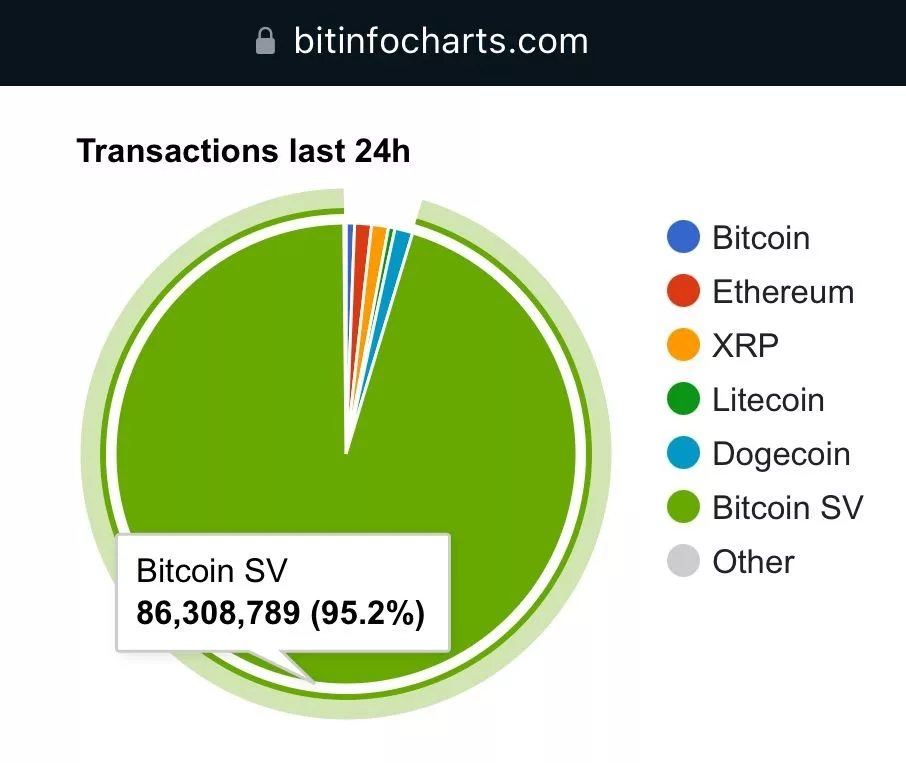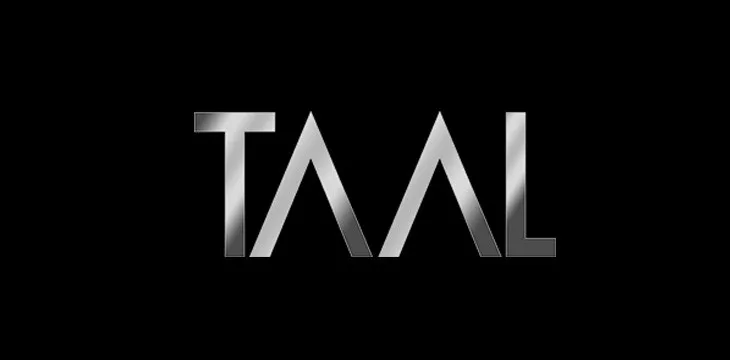|
Getting your Trinity Audio player ready...
|
The BSV blockchain can scale unboundedly without increasing transaction fees. This statement alone proves that BSV is the only ready-for-market enterprise blockchain platform ready for big data. However this week, blockchain services provider TAAL surprised many by dropping its processing fees from 50 sat/kb to a rock-bottom 1sat/kb (a single Bitcoin “satoshi” per kilobyte). It’s intended to spur greater use of the BSV network among large-scale data users.
Speaking to CoinGeek, TAAL CEO Lars Jorgensen said he wanted the world to understand the magnitude of this decision.
“It’s a major thing that happened yesterday. For us, we changed a setting and it took 30 seconds,” he said, but in doing so the firm took a major leap towards creating a true Internet of Value and a new data economy for the whole world.
The fee reduction, he said, is intended to be permanent and is available to anyone transacting on the BSV network. Transaction sizes (in kilobytes) can vary, but the average amount of data written to the blockchain is around 400-1000 bytes. For a million transactions, it’s like reducing the price from 12.5 USD to 25 cents.
That might not seem like much. But the BSV blockchain is aiming to process trillions of transactions per day at some stage, and at those sorts of volumes every cent (or fraction of a cent) matters.
“Everyone can understand the huge potential in this … this is to accelerate mass adoption and enterprise use cases,” Jorgensen added.
He noted that, although BSV’s processors (aka “miners”) have set a 4GB maximum per block which on average are created every 10 minutes, most BSV blocks currently do not contain anywhere near that amount of data.
“We want to support the BSV community also on this scaling journey. If and when it scales, everybody profits. We want our peers (in BSV) to be successful too,” Jorgensen said.
BSV data records getting larger
On May 27, 2023, the BSV network processed over 86 million transactions in 24 hours. That came just two months after mintBlue set the previous daily record with 50 million transactions. This is all happening on Satoshi Nakamoto’s original, open source locked Bitcoin protocol that’s unchanged since 2009. The BSV blockchain network can scale to handle as much data throughput as required—financial, enterprise, government, and everything else. Being able to store data on-chain is a huge incentive for both developers and businesses, and BSV blockchain makes it more affordable.

Note that average per-transaction fees on BTC and Ethereum are $2.43 and $3.78, respectively (so far numbers for the month of June 2023). Ethereum’s fees are relatively low compared to a year ago, when they were closer to the $12 dollar mark. That’s *per transaction*. It almost goes without saying that fees for large-scale, massive data throughput enterprise applications are not feasible at $12 each, or even $3—and this doesn’t even take into account Ethereum’s difficulties with scaling to handle large data volumes.
“You don’t need a calculator to figure out how much a million transactions would cost (on Ethereum or BTC),” Jorgensen said. “Everyone can understand how strong the use case is to move the fees lower on BSV. Enterprises and developers should not hesitate to put billions of transactions on chain.”
And yes, all BSV’s transactions happen on-chain, making the data within them far more secure than any network that needs to lean on external “side-chains” or external contract processing for these sorts of volumes. Yet on BSV blockchain, more data equals cheaper fees. It’s a far superior technological and economic model, one that ensures users own and control access to their own data, lowers barriers to entry, and that will eventually gain greater adoption among large-scale users who need this most.
According to BSVdata.com, the BSV blockchain processesd 2.42 million transactions in the past 24 hours, at an average of 28 transactions per second. The average fee per transaction was 48.92 sat/kb, or (at current market prices) $0.000012. The top network users by type were Utility, Wallet/Market, and Enterprise.
The 1Sat Ordinals protocol still dominates the transactions-per-protocol list, with 47.87 MB of data. NFTs, whether their use case is representing real-world assets or in collectibles, have become extremely popular in the blockchain world over the past couple of years. BSV blockchain allows anyone to mint a non-fungible token (NFT) for a single satoshi (Bitcoin’s smallest monetary unit).
Teranode to boost data throughput even further
At the London Blockchain Conference on June 2, 2023, BSV Blockchain Association Head of Network Infrastructure Jake Jones previewed the node software’s Teranode upgrade. Teranode is a re-writing of the node software from a monolith architecture to a modular architecture (still following all the original “set in stone” rules) that has already seen 50-100K transactions per second in alpha testing.
Jones’ team is hoping to release a version of Teranode for public use by the end of this year, though it’s important to make sure the protocol is rock solid before deploying it on the mainnet. Teranode is key to seeing the BSV blockchain scale unboundedly, reaching Dr. Craig S. Wright’s vision of millions, even billions (or more) transactions per second and having enough capacity to handle the entire world’s data with ease.
Watch Jake Jones on CoinGeek Weekly Livestream: Taking Bitcoin to unbounded scaling

 02-27-2026
02-27-2026 




